At a glance
- LLS offers benefits to both fellows and their host laboratories.
- Learn how LLS impacts public health and the lives of its participants through the featured stories.
- Learn about LLS from those who have been a part of it.
Feature stories
Improving Global Laboratory Response: Laboratory Leadership Service Fellow Trains Lab Staff to Detect Harmful Fungal Infections
Fungi are everywhere, and the number of disease-causing fungi is rising worldwide. When laboratories can spot these harmful fungi, patients can quickly get the right diagnosis and treatment. Scientists at CDC's Mycotic Diseases Branch (MDB) teach people across the United States and globe how to identify and test disease-causing fungi to improve public health.
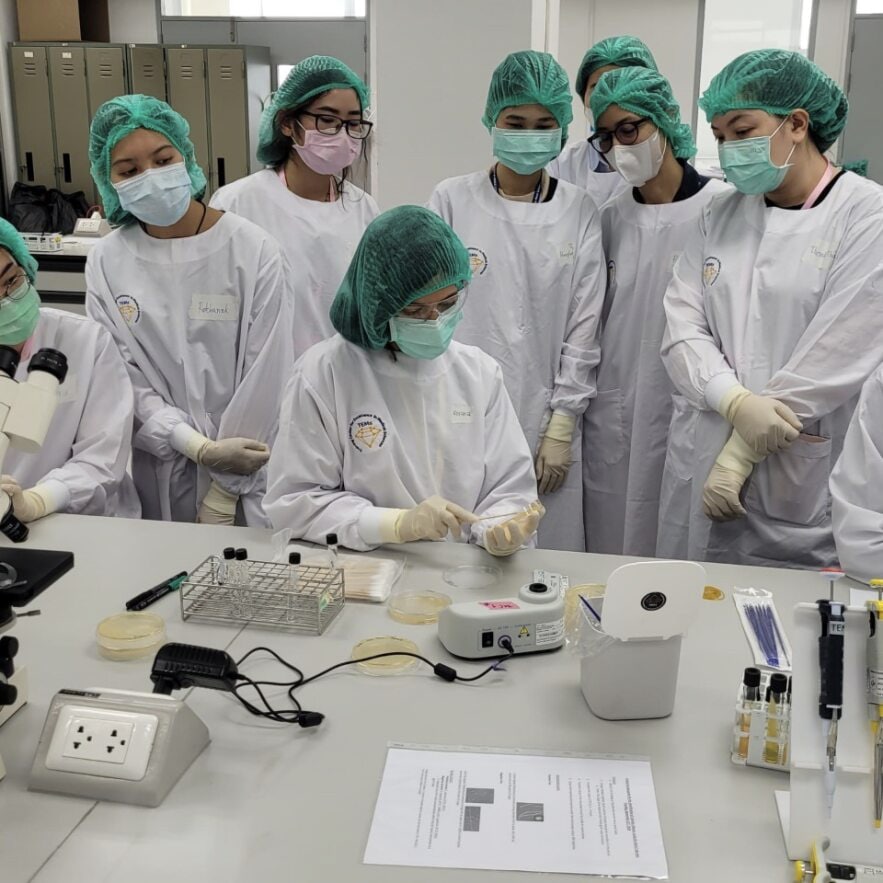
In September 2023, LLS fellow, Roxana Rodriguez Stewart, PhD, working in CDC's MDB, collaborated with CDC Thailand and Thailand's Ministry of Public Health to train 26 lab staff on fungal laboratory tests. Trainees spent four days attending lectures each morning and applying those lessons in afternoon laboratory sessions. Staff learned to identify disease-causing fungi and test antifungal treatments. They worked through laboratory testing processes like those in real-life scenarios when the lab receives a specimen from a patient with an unknown cause of infection.
Roxana's training was a success! Staff increased their knowledge of fungal lab tests by 31 percent. This training would not have been a success without all the hard work, months of planning, collaboration, and passion for public health―all of which are needed in the continued effort for improving fungal diagnostics and treatment worldwide.
Laboratory Capacity Building for Region at Risk of Cholera Outbreak
In light of multiple global outbreaks of cholera—many in regions where cases were not observed for a decade or more—laboratory preparedness for characterizing the causative agent of cholera, the bacterium Vibrio cholerae, is a high priority in Central America. El Salvador's Ministry of Health (MOH) recognized an urgent need to strengthen in-country laboratory capacity. They were especially interested in being able to test for cholera more effectively. The MOH reached out to global partners COMISCA and CDC for assistance, and the CDC's Enteric Diseases Laboratory Branch (EDLB) was invited to support this effort. Megan Mickum, PhD, a LLS fellow assigned to EDLB, was ready to lend a helping hand in the form of her laboratory expertise. Megan was invited to El Salvador to take part in a week of education and capacity building alongside partners from across Central America. As a lab expert from CDC, Megan gave educational lectures to audiences of 50–60 participants from El Salvador's MOH. She educated the audience on culture and molecular methods for cholera detection, other lab testing methods, and how all these components play a pivotal role in cholera surveillance and outbreak investigations.
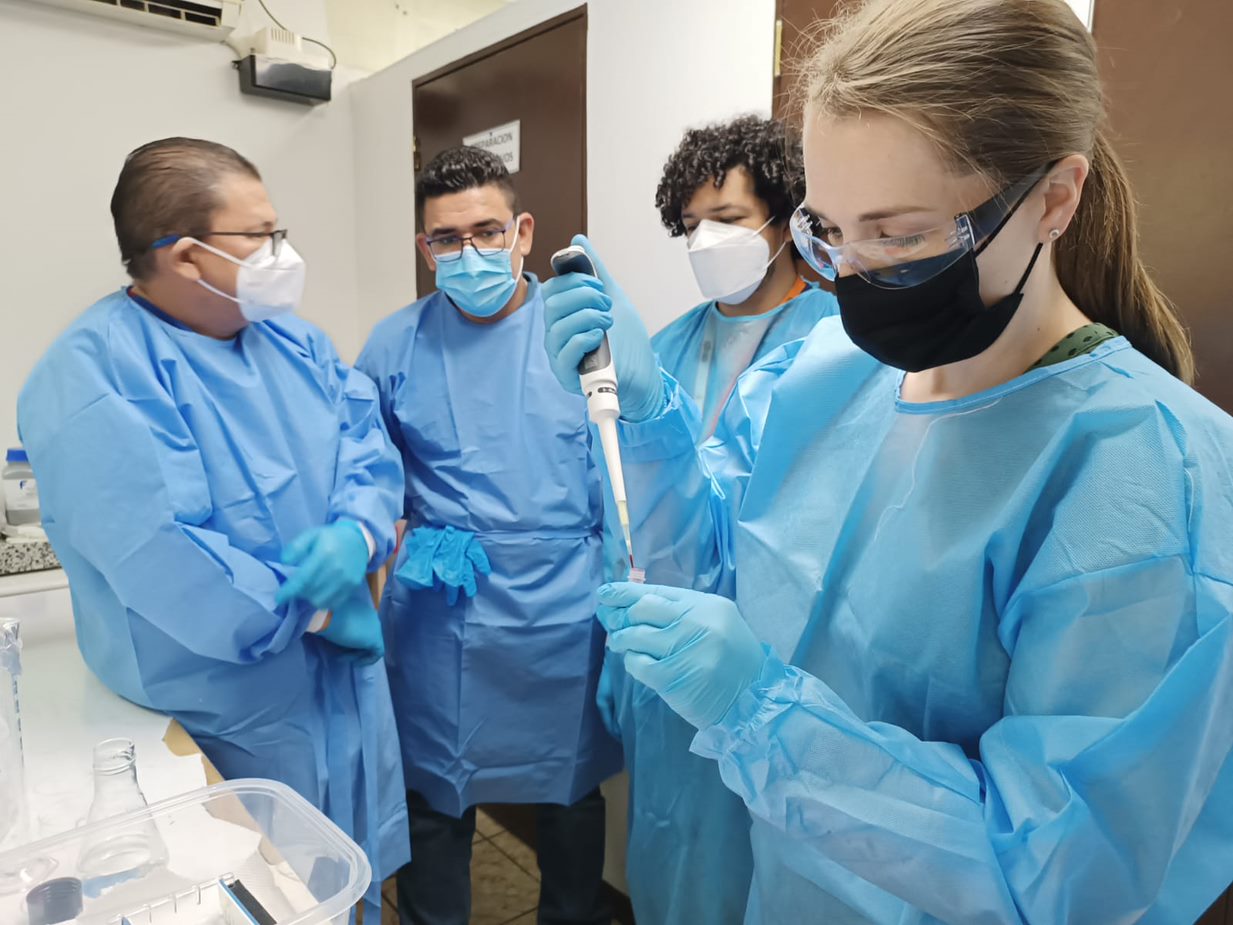
Besides the educational lectures in El Salvador, Megan spent four days working hands-on with six members of the Salvadorian National Public Health Laboratory (LNSP) to set up their own molecular testing laboratory. Prior to the visit, Megan worked closely with the team at SE-COMISCA to plan and prepare for this training. SE-COMISCA assisted with the necessary equipment and reagents, and the LNSP remodeled a previously unused room to serve as their new testing lab. Megan helped with making sure everything was in the right place, taught the steps of the assay, and taught everyone how to perform and interpret the tests. It was vitally important for the LNSP to learn the proper way to identify and characterize toxigenic Vibrio cholerae as the causative agent of cholera and how to optimize their protocol for their newly designed laboratory space and workflow. Megan recounted that working alongside these lab professionals was a once in a lifetime experience. "I would never have had an opportunity like this if not for being an LLS fellow. This was the most fun I've had in my professional career."
Putting COVID-19 Tests Through the Paces
LLS fellow Jessica Prince-Guerra (2020 class) deployed to Arizona and Georgia to provide laboratory expertise for CDC's COVID-19 emergency response. She helped evaluate the widely distributed antigen test that received Emergency Use Authorization (EUA) from the Food and Drug Administration for use in people with symptoms. Jessica compared this test to real-time RT-PCR testing, the "gold standard" for detecting the virus. A CDC Morbidity and Mortality Weekly Report describes results from Arizona, where she led a team to test 3,400 residents in two weeks. In Georgia, her team tested more than 2,000 students and staff at a college over four-days. Read about Jessica and her team's findings in this Virology Journal publication. Learn more about Jessica and her disease detective experience in this CDC responder story.
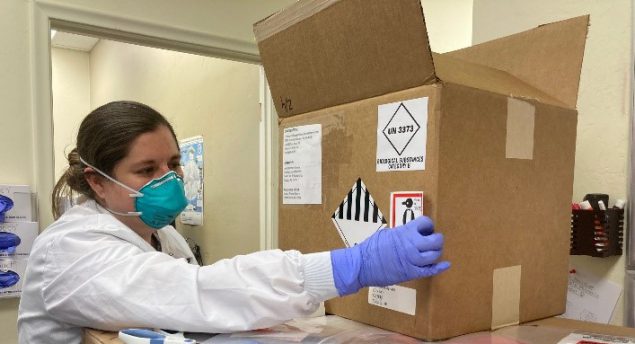
COVID-19 Testing Demand Keeps CDC Lab Fellow on the Go
LLS fellow Jesica Jacobs (2019 class) led the charge by the Massachusetts Governor for the State Public Health Laboratory to determine how well the Abbott BinaxNOW rapid antigen COVID-19 tests could detect SARS-CoV-2 in people with and without symptoms. Jesica worked with the lab director to organize and execute the study, analyze the data, and publish the findings. Learn more about Jesica and her experiences as a disease detective in this CDC responder story.
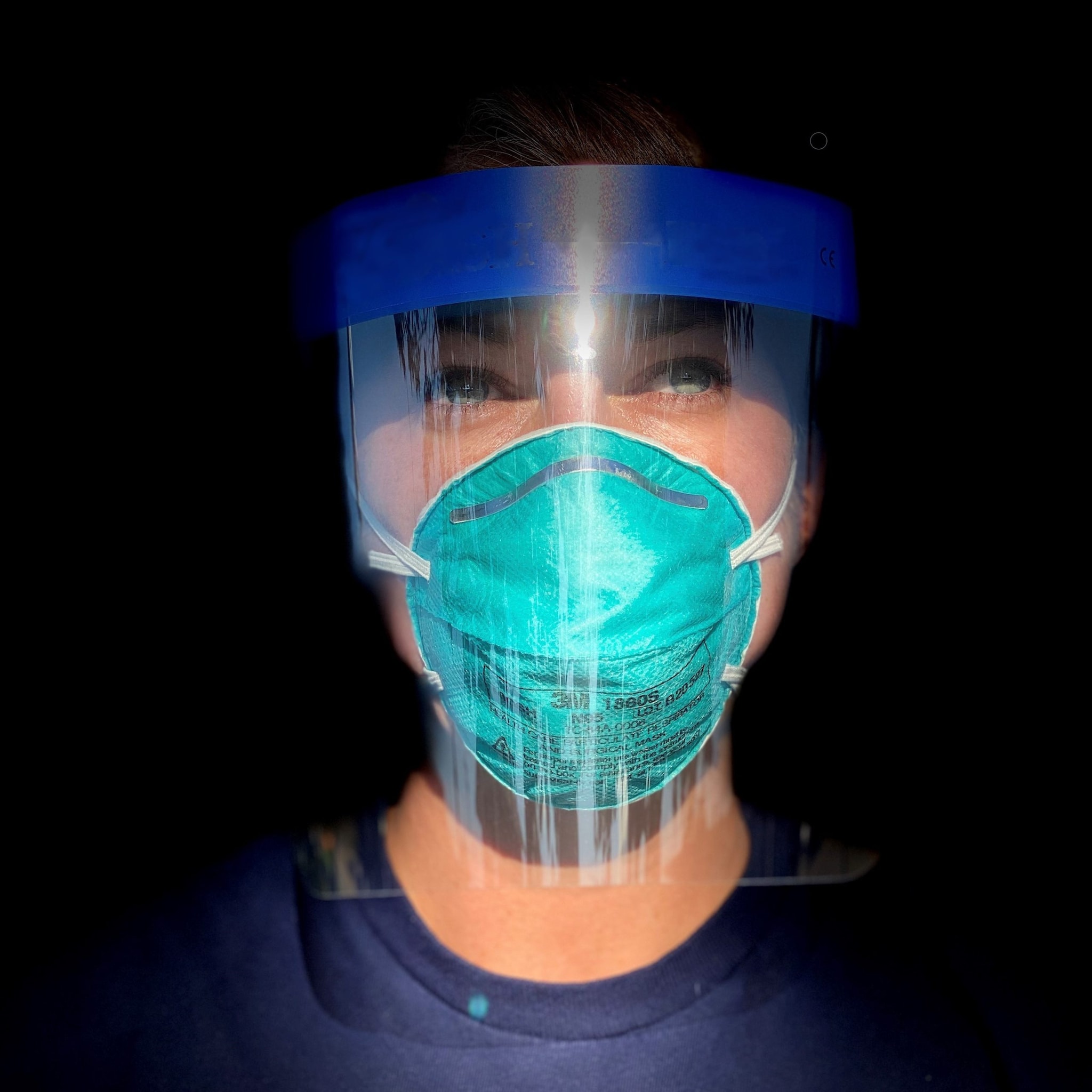
Improving Rabies Animal Models for Medical Countermeasures through Luminescent Viruses
LLS fellow David Lowe (2017 class) developed a new light-producing rabies animal model to help test new vaccines and therapeutics, which he presented at the 2019 Epidemic Intelligence Service (EIS) conference. CDC scientists work to develop and test new medical countermeasures (MCMs) that can be used to protect the public from diseases in an outbreak, natural disaster, or bioterrorism event. MCMs can include things like vaccines, medications, and diagnostic tests. Research on MCMs can include using animal models to test their effectiveness. Some pathogens, like Rabies lyssavirus (RABV), cause few signs of infection before death, which makes it hard to know if test animals survive because of effective MCM treatment, or because they were never infected.
David and his colleagues tested two RABV strains that had genes added to produce light when the viruses spread in infected animals. They found that these light-producing, or luminescent, rabies strains showed clear evidence of infection in mice, measured in "radiance" using a special laboratory imager. This meant they could detect rabies infection in living animals before clinical signs of rabies were detected. Luminescent rabies strains give clear and early signs of rabies virus in test animals. These new models could reduce the number of animals needed for testing, limit harm to test animals, and lower project times to develop and improve MCMs for rabies.
"Medical countermeasures, or MCMs, are crucial to public health readiness in an emergency. Improving our animal models will allow future MCM research to be more targeted and efficient and can reduce the use of laboratory animals in developing and testing MCMs."—David Lowe, PhD, LLS Fellow of 2017
Initial Public Health Laboratory Response after Hurricane Maria
LLS fellow Brunilis (Brunie) White (2016 class) worked with the Puerto Rico Department of Health to help re-establish lab operations after Hurricane Maria, which she presented during the 2018 Epidemic Intelligence Service (EIS) conference. Public services in Puerto Rico were severely affected by Hurricane Maria, including the operation of the Puerto Rico Department of Health (PRDOH) which provides critical laboratory testing and surveillance for diseases and other health hazards.
The PRDOH identified repair of the public health laboratories as a major priority during the post-hurricane response and requested assistance from CDC with clinical testing as well as with structural and safety assessments to help guide the restoration process. Brunie was among the CDC experts who worked closely with PRDOH and other federal, state, and non-governmental partners in providing technical support and aid in reestablishing laboratory operations during the emergency response.
"Health departments may find it helpful to incorporate the practices used in Puerto Rico to help re-establish diagnostic testing and disease surveillance quickly after a natural disaster," expressed Brunie."—Brunilis (Brunie) White, PhD, LLS Fellow
Fellows in the news
LLS fellows offer invaluable expertise and technical skills to any public health lab or response effort. Check out news articles and podcasts for additional perspectives on the value of fellows’ contributions to public health.
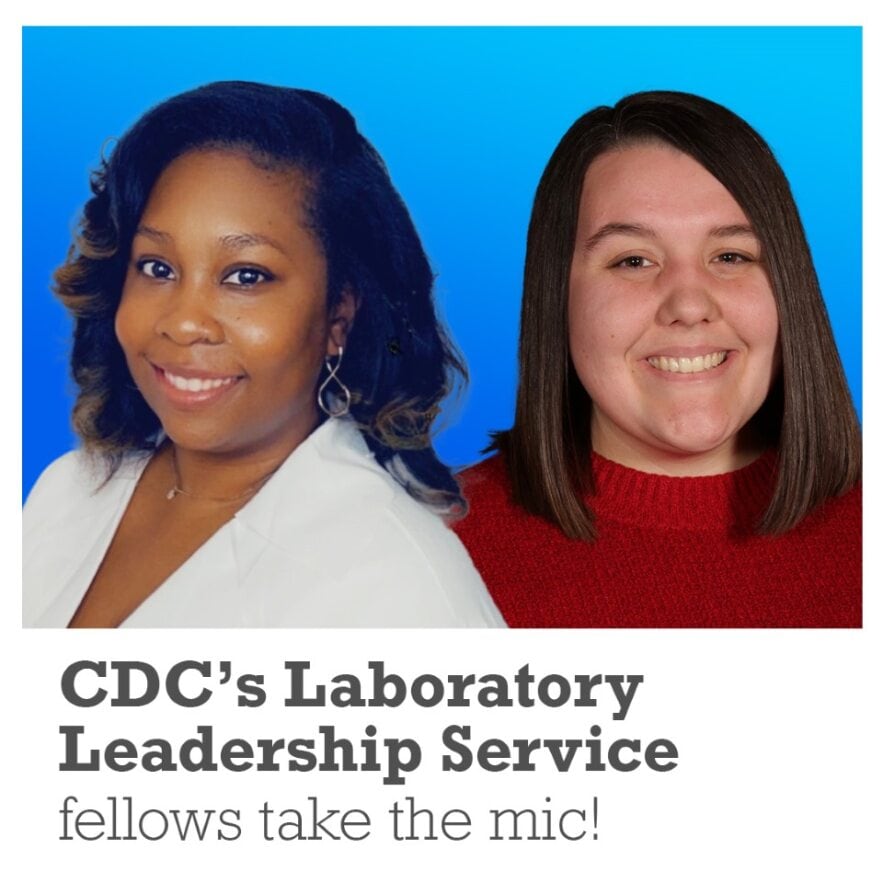
- Podcast: Lab Culture episode 32: Dr. Bell and Dr. Yarosz love their CDC LLS fellowship experience. What is the LLS fellowship?
- Association of Public Health Laboratories Lab Culture Podcast: Episode 32, September 28, 2023
- Laboratory Leadership Service fellows Courtnee' Bell and Emily Yarosz (2022 class) share their paths to discovering LLS and their transformative fellowship experiences.
- Association of Public Health Laboratories Lab Culture Podcast: Episode 32, September 28, 2023
- Podcast: Straight Talk with Alison Robertson – COVID-19
- The Con Artist Podcast: The Art of Confidence through the Creative Mind, January 6, 2021
- LLS alum Lt. Oren Mayer (Class of 2019) and two other experts discussed COVID-19 prevention with podcast cohosts Blake and Alison.
- The Con Artist Podcast: The Art of Confidence through the Creative Mind, January 6, 2021
- 15 Minutes with Tara Henning
- Lab Matters, Fall 2020
- LLS Fellowship lead Tara Henning talks about her interest in public health, the Laboratory Leadership Service fellowship, and the value of partnership for recruitment in this issue of the Association for Public Health Laboratories magazine.
- Lab Matters, Fall 2020
- In the Field | At the Center of the COVID-19 Response
- The University of Wisconsin–Madison, October 2020
- Christina Carlson is an LLS alum in the Class of 2018. Learn about how she leveraged her cellular and molecular biology expertise to help manage the COVID-19 pandemic.
- The University of Wisconsin–Madison, October 2020
- USU Alum Manages Lab That Supports COVID-19 Testing for State of Michigan
- The Pulse, May 19, 2020
- Diana Riner is an LLS alum in the Class of 2016. Learn about her contributions to the COVID-19 response as the Virology and Immunology Section Manager in the Michigan Department of Health and Human Services.
- The Pulse, May 19, 2020
Video stories
Hear LLS fellows and alumni talk about the unique opportunities and influential experiences behind their lifesaving public health work.
Bureau of Laboratories for the Michigan Department of Health and Human Services
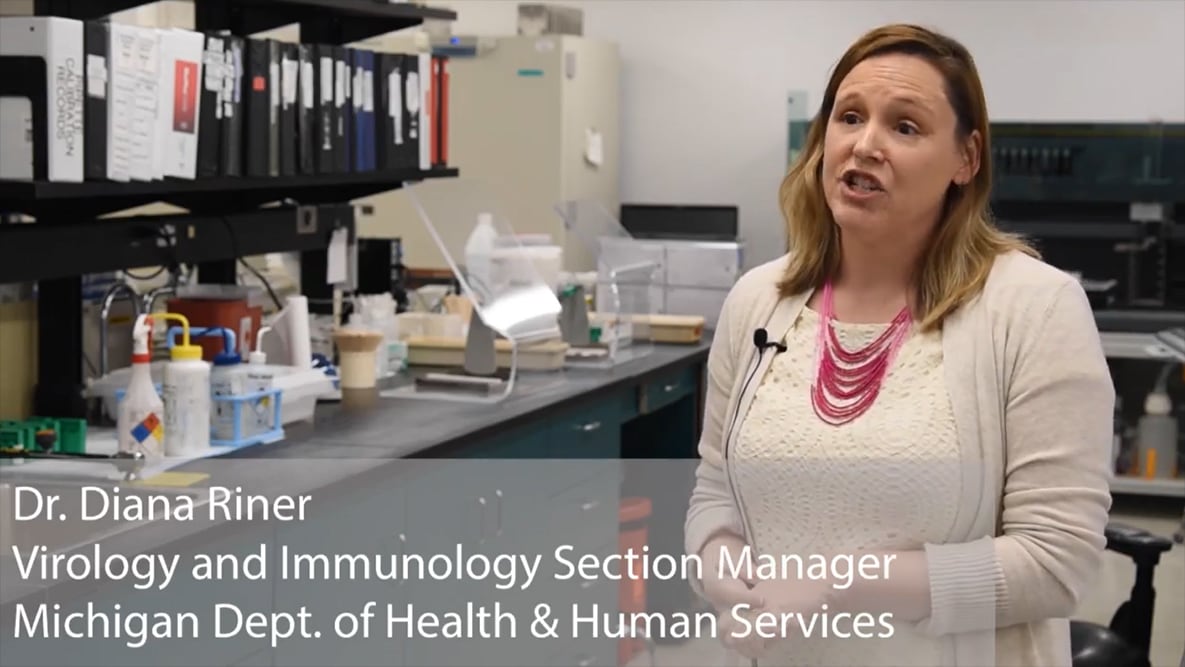
In this Facebook video, LLS alum Diana Riner (PhD) speaks about the COVID-19 response in Michigan from her perspective as Virology and Immunology Section Manager. She recognizes the critical support provided by the National Guard as they helped process the high volume of COVID-19 test samples received in the Lansing state lab.
Making A Broad Impact Through LLS
During the 2019 Epidemic Intelligence Service (EIS) conference in Atlanta, GA, LLS fellow Rita Stinnett, PhD, MHS, shared why LLS is a challenge worth accepting. From research to emergency response work, LLS fellows help solve major public health challenges while gaining experience in biosafety, emergency response, quality management systems, and more!
Behind the Scenes of an Investigation with LLS Fellow Kara Levinson
Learn about the compelling investigative work and personal experiences of an LLS fellow in this TED-style Talk, an engaging presentation format offered during the 2019 68th Annual Epidemic Intelligence Service Conference. In this video, Class of 2018 LLS fellow Kara Levinson, PhD, MPH, addresses Finding Legionella in a Tourist Town: What Jaws, Drones, and Hot Tubs Taught Me About Public Health Partnerships, an unusual outbreak of Legionnaires' disease in New Hampshire that was solved by unlikely partners in public health.
Behind the Scenes of an Investigation with LLS Fellow David Lowe
Learn about the compelling investigative work and personal experiences of an LLS fellow in this TED-style Talk, an engaging presentation format offered during the 2019 68th Annual Epidemic Intelligence Service Conference. In this video, Class of 2017 LLS fellow David Lowe, PhD, addresses How Bass Fishing and Tailgates Can Improve Specimen Transportation, a story of how outdoors enthusiasts and football tailgates helped inspire innovative ways of keeping samples cold while in the field.
Behind the Scenes of an Investigation with LLS Alum Aufra Araujo
Hear a historical reflection of the investigative work and personal experiences of the first ever TED-style Talk given by an LLS alum at Epidemic Intelligence Service Conference. In this video, Class of 2015 LLS alum Aufra Araujo, PhD, addresses “God is Guinean”—Miracles in the Laboratory.
Making a Difference Inside and Outside the Lab
Learn about the critical laboratory component of public health investigations and emergency responses. LLS fellow Randy Fowler (2017 class) shares the unique experiences and opportunities related to his field assignment in Saint Paul, Minnesota, and in building laboratory capacity in the U.S. Virgin Islands.
This video is also available as a 4-part series on our LLS YouTube playlist.
Finding Meaning through Applied Lab Science
LLS fellow Diana Riner (2016 class) details her fellowship experiences, including an outbreak response in Pennsylvania, and shares how this fellowship prepared her to take the next step in her career—a leadership role within a state public health laboratory.
This video is also available as a 4-part series on our LLS YouTube playlist.
Seizing Fulfilling Opportunities
LLS fellow Cecilia Kretz (2017 class) shares the personal and professional growth that the LLS fellowship provides and her experience as both a laboratorian and a CDC liaison to the New York State Department of Health.
This video is also available as a 4-part series on our LLS YouTube playlist.
Going Beyond the Lab Bench
LLS fellow Caelin Potts (2016 class) talks about thriving in a dynamic learning environment and explains how LLS fellows link laboratory science with logistics planning to address urgent public health needs.
This video is also available as a 4-part series on our LLS YouTube playlist.
Behind the Scenes of an Investigation with LLS Fellow Cecilia Kretz
Learn about the compelling investigative work and personal experiences of an LLS fellow in this TED-style Talk, an engaging presentation format offered for the first time during the 2018 67th Annual Epidemic Intelligence Service Conference. In this video, Class of 2017 LLS fellow Cecilia Kretz, PhD, addresses Blood, Sweat, and Sometimes Tissue Samples: Tracking a Killer Germ Back to its Watery Birthplace.
Disease Detectives Share Experiences and Career Paths
Watch CDC's Facebook Live recording and hear from a panel of CDC's disease detectives as they discuss their experiences working on outbreaks and their career paths to the Epidemic Intelligence Service (EIS) and Laboratory Leadership Service (LLS). (Live event aired on May 18, 2018.)
